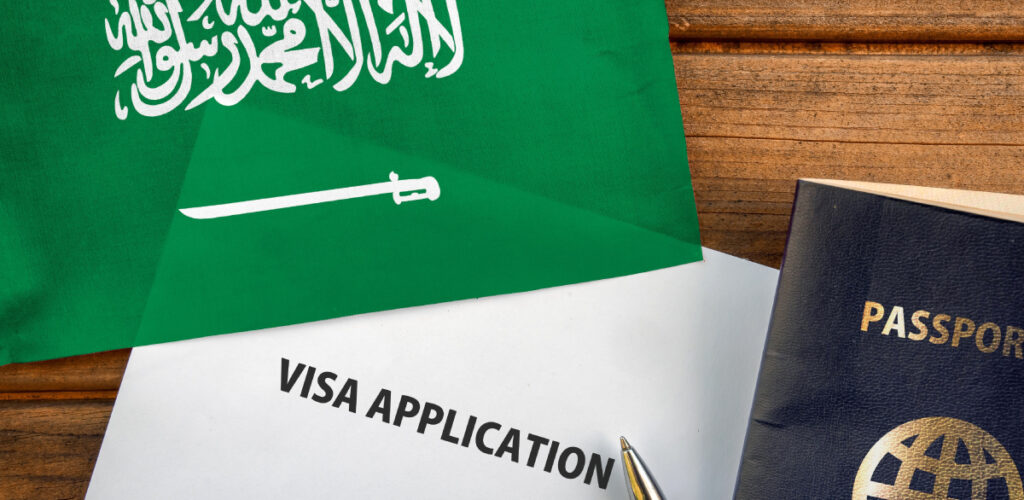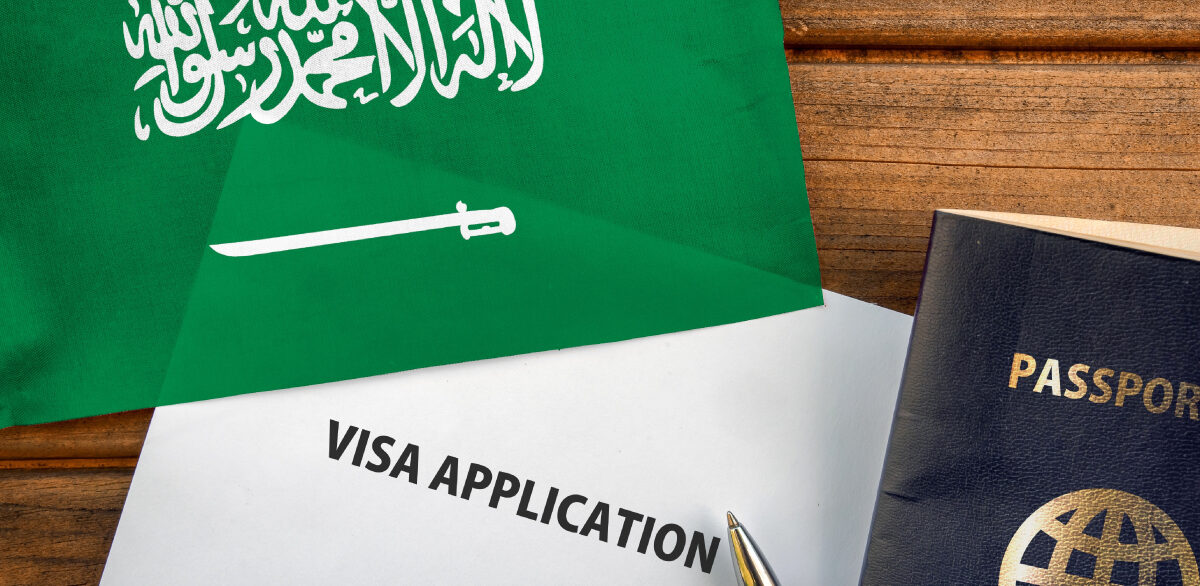Saudi Arabia has recently made a major change to its visa policy that will affect millions of travelers, especially from India. Beginning February 1, 2025, the Kingdom has suspended the issuance of one-year multiple-entry visas for citizens of 14 countries, including India. Now, travelers from these nations can only apply for single-entry visas, valid for just 30 days.
The sudden move has sparked concern among regular travelers, tour operators, and business professionals, many of whom depend on flexible travel access to the Kingdom.
🌍 Which Countries Are Affected?

According to official Saudi announcements, the following 14 countries are included in this visa restriction:
- India
- Pakistan
- Bangladesh
- Indonesia
- Egypt
- Sudan
- Ethiopia
- Nigeria
- Iraq
- Jordan
- Algeria
- Morocco
- Tunisia
- Yemen
These countries represent a large portion of the Muslim world and are frequent sources of religious, business, and tourism travelers to Saudi Arabia.
🔍 What Are the Key Visa Changes?
Here’s a breakdown of what’s new:
- No More One-Year Visas: The popular one-year, multiple-entry visa option is now off the table.
- Single-Entry Only: Eligible travelers can now only enter once per visa.
- 30-Day Limit: Each visa allows a maximum stay of 30 days, with no extension options.
- Not for Everyone: This ban does not apply to:
- Hajj and Umrah pilgrims with proper permits
- Diplomatic visa holders
- Permanent residents and long-term workers
⚠️ Why Did Saudi Arabia Make This Move?
The official reason? Misuse of multiple-entry visas.
Saudi authorities say many travelers used these visas to overstay illegally, work without permits, or participate in unauthorized Hajj pilgrimages. This has become a serious issue, especially with increasing crowd control challenges during religious events.
During the 2024 Hajj, over 1,200 pilgrims reportedly died, mainly due to extreme heat and overcrowding. Officials believe a large number of these were unauthorized participants, many of whom may have entered on tourist or business visas. This tragedy has pushed Saudi officials to tighten visa regulations to avoid similar incidents.
🇮🇳 How Does This Affect Indian Travelers?
India is one of Saudi Arabia’s largest travel partners. In 2022, over 2.5 million Indian nationals visited the Kingdom for tourism, business, or to visit family. The new rules now disrupt that growing traffic.
Here’s how different groups will be impacted:
1. Business Professionals
Frequent fliers, especially those attending meetings or working on short-term contracts, will now need to apply for a fresh visa for every visit—leading to delays and increased paperwork.
2. Families and Expat Relatives
Indian families with loved ones living or working in Saudi Arabia often visit multiple times a year. With single-entry restrictions, these visits now become more expensive and harder to plan.
3. Tourists
The Saudi government recently opened its doors to global tourism under Vision 2030. However, the single-entry restriction could discourage repeat visits, especially for those planning multi-city trips or regional stopovers.
🛠️ Other Rules for Indian Workers
This isn’t the only recent policy change affecting Indian nationals. In January 2025, Saudi Arabia also introduced a rule requiring pre-verification of educational and professional qualifications for anyone applying for a Saudi work visa.
The verification must be completed before the visa application is approved. This aims to ensure only qualified professionals enter the Kingdom, reduce fraud, and streamline the employment process.
⏳ Is This Temporary or a Long-Term Shift?
Saudi Arabia has said this is a temporary suspension, but no specific timeline has been shared for its review or possible reversal. Government agencies are expected to monitor how well this new policy reduces illegal stays and unauthorized religious participation before making further decisions.
Experts believe the visa suspension could last through the 2025 Hajj season, and possibly longer if violations continue.
🧭 What Should Travelers Do Now?
If you’re planning a trip to Saudi Arabia from India or any of the other 13 affected countries, here’s what you should keep in mind:
- Apply Early: Visa processing may take longer than usual due to the added scrutiny.
- Don’t Overstay: Even a single day over the 30-day limit can result in fines, deportation, or future visa bans.
- Follow Legal Routes for Pilgrimage: Participating in Hajj or Umrah without proper authorization is now a criminal offense under Saudi law.
- Use Authorized Channels: Avoid agents or companies promising “workarounds” to the visa process—they may lead to blacklisting.
🎯 Vision 2030 vs. Visa 2025
Saudi Arabia’s decision may seem to contradict its own Vision 2030 plan—a roadmap to attract 100 million tourists annually and diversify the economy away from oil. The Kingdom has already invested heavily in tourism infrastructure, with big campaigns targeting travelers from India, China, and Europe.
As part of this initiative, Saudi Arabia had also announced plans to bring in 7.5 million Indian tourists per year by 2030. That number seems more ambitious now, considering the new restrictions in place.
However, officials say this policy is about security and control, not turning tourists away. Once systems are improved, multiple-entry visas may return with stricter eligibility rules.
📌 Final Thoughts
Saudi Arabia’s visa changes may be temporary, but the consequences are real and immediate for Indian travelers. Whether you’re planning a business trip, a vacation, or a visit to family, you’ll now have to plan more carefully and factor in the new limitations.
These changes may help the Kingdom tackle illegal immigration and better manage religious tourism, but they also risk slowing down momentum in tourism and trade ties—especially with countries like India that have strong cultural, religious, and economic links with Saudi Arabia.
For now, travelers are advised to stay informed, follow official updates, and avoid relying on outdated visa assumptions.
Do follow gulf magazine on Instagram
for more information click here



